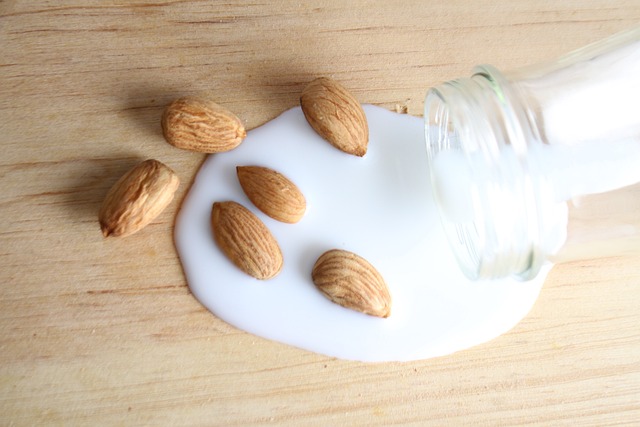Gentlemen! We have additional information you should read before adding protein bars for men to your diet.
Are Protein Bars Good for Men?
Because protein bars frequently contain other substances, we recommend looking to entire food sources to meet your protein needs. Several protein bars have ingredients that are comparable to candy bars or cookies but with extra protein. Yet, there are several conditions in which protein bars may be useful.
Protein bars may be beneficial to the following people:
People who are pressed for time:
A protein bar may help get through between meals if you are short on time and searching for a quick protein choice on the run.
If you don’t have time to eat after exercising, a high-quality protein bar may be beneficial until you can eat a full meal.
However, you need to know not all protein bars contain a lot of protein you’ll probably need to supplement with other sources.
Individuals who are active:
Athletes require more protein to help grow and repair their muscles. Protein bars, along with other whole-food protein sources, may be a handy approach to increasing protein intake.
It is important to note that protein supplements may increase muscle mass only if your activity level and overall diet are suitable.
Individuals trying to bulk up:
If you want to gain weight, protein bars are a convenient method to add more calories and protein to your diet without adding a lot of bulk.
Some protein bars include more calories and nutrients than others, so read the ingredient list carefully.
Senior citizens: To compensate for age-related muscle loss, older adults may require more protein in addition to resistance exercise. Protein bars may be an easy way to get protein and other nutrients like lipids, carbs, vitamins, and minerals.
Who Shouldn’t Eat Protein Bars?
Certain groups of people may want to avoid protein bars. These groups include
Individuals that eat a well-balanced diet:
You don’t need to rely on protein bars if you eat a well-balanced diet and get your protein from entire foods. Higher levels are most likely available from entire food sources.
People attempting to reduce weight:
According to some studies, increased protein diets may aid in weight loss. Protein bars, on the other hand, have varied levels of fat, carbohydrates, and protein, and many have additional sweets and sweeteners.
Because bars do not have a lot of volume, they are not necessarily full, which can lead to eating more than you would if you focused on entire food sources.
People suffering from renal disease:
If you have kidney illness or another disorder that requires you to monitor your protein consumption, you should avoid protein bars or check with your doctor.
Things to Look for While Buying Protein Bars
Protein bars for males are normally sold separately wrapped bars, although some are also made into cookies or other baked products.
Ingredients
It is critical to thoroughly study what is in the supplement’s and what they offer to determine which ingredients are included and how much of each ingredient is included in relation to the recommended daily value of that component.
Please bring the supplement label to your healthcare provider so that they may review the various chemicals in the supplement as well as any potential interactions between these substances and other supplements or drugs you are taking.
Protein bars can contain a wide range of components, so read the ingredient list carefully. Protein bars, for example, contain protein from a variety of sources. This can include protein derived from animals, such as whey protein or eggs, as well as protein derived from plants, such as brown rice protein, pea protein, pumpkin seeds, or chia seeds. This is especially crucial if you have any allergies or sensitivities. Protein content varies amongst bars, with 10 to 20 grams of protein per bar being the most common.
Carbs in Protein bars
Carbohydrate types and sources in bars might also vary. Some bars contain carbs derived from real foods such as dates or oats, but others have added sugars or sweeteners. Low-sugar bars often achieve this profile by incorporating sugar alcohols such as xylitol or maltitol, which can cause gas and stomach irritation in some people.
Synthetic fibers like chicory root, which can cause bloating or gas, may also be found in bars. Protein bars are frequently low in fiber—the recommended fiber consumption for males aged 19 – 50 is 31 to 34 grams, so make sure to achieve these requirements with complete foods like fruits, vegetables, and whole grains.
Some bars also include additional vitamins, minerals, and caffeine, which you may or may not desire depending on your needs and goals.
If you have any allergies or are lactose intolerant, read the labels carefully because many bars include nuts or dairy.

When should you consume a protein bar?
Protein bars are a versatile snack that may be used as a pre-or post-workout snack, as well as to fill the gap between meals. These can be a convenient option if you are on the run and don’t have time to prepare a full meal.
Can I substitute a protein bar for a meal?
We do not recommend replacing a meal with a protein bar. Protein bars differ widely in terms of protein, carbohydrates, fat, vitamins, and minerals. Protein bars are a convenient choice. We do not recommend making skipping meals a habit because you will be able to receive a greater variety of nutrients from entire food sources. If you are unable to have a specific meal, such as breakfast, due to time constraints or other considerations, a protein bar can be paired with another portable food, such as fruit or yogurt.
Do protein bars promote constipation or gas?
Sugar alcohols are included in several protein bars. They can be identified on the ingredient list since they end in “-ol.” Maltitol, xylitol, and sorbitol are examples of sugar alcohols found in some bars. Sugar alcohols can induce gas, bloating, and diarrhea in certain people. Additionally, many protein bars do not contain a lot of fiber. Constipation may occur if you rely on these on a daily basis rather than eating high-fiber foods such as vegetables, fruits, whole grains, nuts, and seeds.
Do protein bars make you gain weight?
When you intake more calories than you expend, you will gain weight. While protein bars do not cause weight gain on their own, they may cause weight gain when combined with a calorie surplus. Protein bars are also often modest in size, making it easier to ingest a large number of calories without even realizing it.
Do protein bars aid with muscle growth?
Some studies indicate active people consume 1.2 to 2.0 grams of protein per kilogram of your weight everyday. Protein bars can help you get this quantity of protein, but they should not be your exclusive source of protein. Since protein bars have various levels of protein, fat, and carbohydrates, we recommend starting with whole-food protein sources to meet your needs. It is also vital to understand that ingesting protein without combining it with exercise will not result in muscle gain.
What is the typical price of a protein bar?
The typical price of a protein bar varies based on the size, packaging, and source of ingredients. In general, the average cost per bar might range from $1.50 and $4.
In general, protein bars composed mostly of plant-based ingredients are less expensive than bars made primarily of animal-based ingredients such as meat or milk proteins. Bigger pack sizes and subscription options can also help bring the cost per bar down.
To Conclude
I believe the products in the roundup are created by reputable companies and include high-quality components. I would recommend the things listed above to friends, family, and clients, and I have personally tested all of them.

